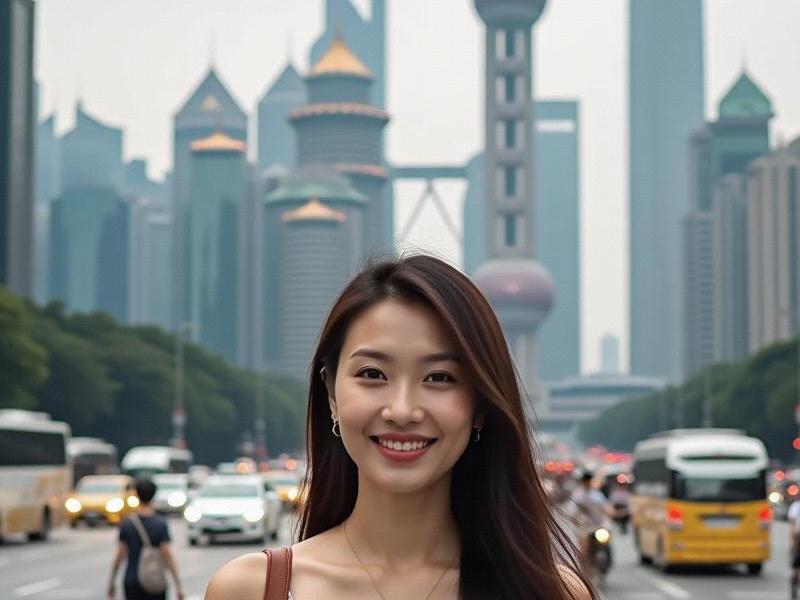
The Velvet Revolution: Shanghai's Entertainment Clubs Reinvented as Cultural Powerhouses
As dusk descends upon the Huangpu River, an intriguing metamorphosis occurs within Shanghai's most exclusive addresses. What were once stereotypical "KTV palaces" now function as sophisticated cultural crucibles where Jiangnan heritage meets global art, fintech deal-making shares space with Peking Opera fusion performances, and hospitality becomes an engineered science. This is the velvet revolution of Shanghai's entertainment clubs - spaces redefined as strategic assets in China's commercial capital.
Architectural Alchemy: Venues as Cultural Embassies
The evolution begins at threshold. Within the Brutalist facade of Cloud Nine in Xuhui, visitors discover:
- Sound-engineered chambers dampening decibels to museum-quality acoustics
- Holographic installations projecting Song Dynasty landscapes onto curved walls
- Ventilation systems calibrated to Shanghai's humidity cycles
Architect Wang Jie, who transformed three historic buildings along the Bund into the "Silk Sound" complex, explains: "We've moved from mirrored walls to material storytelling. Our VIP rooms feature programmable silk walls that display calligraphy or market data streams. This creates 'cultural depth perception' - recognizing Shanghai as both water town and financial hub."
Business Ecosystems: Deal-Making in Dim Light
Shanghai's entertainment venues have become critical business infrastructure:
- The 18-Hour Deal Cycle: Mornings in Lujiazui boardrooms transition to evening negotiations at venues like "The Pearl Room," where encrypted tablets allow real-time contract adjustments between songs
- Sector-Specific Sanctuaries:
• Zhangjiang Tech Lounge's private rooms feature VR prototyping stations
• Hongqiao's "Logistics Lyceum" has walls displaying live global shipping data
• The French Concession's "Art Equity Club" rotates gallery-worthy collections as deal icebreakers
- Relationship Engineering: Algorithmic seating plans optimizing cross-industry networking while respecting corporate hierarchies
爱上海论坛 General Manager Li Wei of Dragon Gate Pavilion observes: "Our revenue split shifted from 80% alcohol/20% services to 45% strategic consultation packages. We're hired to engineer serendipity."
Performing Arts Renaissance: Beyond Karaoke
Stage programming now rivals professional theaters:
- At The Constellation Club, holographic Mei Lanfang duets with jazz vocalists
- Cloud Nine's rotating residency program features Juilliard-trained guzheng players interpreting Philip Glass
- "Nongtang Remix" nights blend alleyway storytelling with digital projection mapping
Cultural Minister advisor Dr. Zhou Min notes: "Venues fulfill arts funding mandates through private patronage. The Jade Dragon Ballroom alone spends more on live performers than three district cultural centers combined."
Gastronomy as Performance Art
Kitchens transformed from snack factories to Michelin-tracked experiences:
- At "West Bund Cellar," 16-course dégustations pair Shanghai classics like drunken crab with molecular interpretations
- Huanglong Road's "Taste Memory" project employs neuroscientists to recrteeachildhood flavors of disappeared Shanghainese neighborhoods
- The "Silk Road" venue chain offers tasting journeys following historical trade routes with VR accompaniment
Chef Elena Zhang explains: "Service staff now include sensory anthropologists explaining how Jiangnan flavor differs from Sichuan shock tactics."
The Policy Tightrope: Innovation Within Frameworks
爱上海419论坛 The transformation required nuanced navigation:
- Sound Level Diplomacy: Venues fund neighborhood cultural initiatives securing "acoustic licenses"
- Staff Certification: Mandatory heritage education programs qualifying as vocational training
- Responsible Service: Blockchained beverage tracking preventing overconsumption
- Digital Integration: City compliance systems embedded directly in POS terminals
The Shanghai Hospitality Innovation Council coordinates with government through:
- Monthly "Culture Contribution" indices measuring artistic programming
- Transparent revenue reporting via municipal fintech platforms
- Sustainable venue certification programs
Council chair Victor Chen states: "Our best insurance policy is becoming indispensable cultural infrastructure."
Economic Calculus: The Nighttime GDP Engine
Beyond direct revenue:
- Employment Multipliers: Venues now employ historians and data scientists alongside service staff
- Real Estate Enhancement: Premium rents within 500m of certified cultural venues
- Exporting Models: Shanghai hospitality groups now manage Bangkok and Dubai venues
- Creative Spillover: Lighting innovations from venues adapted to public art installations
Jing'an District Director Mei Ling reveals: "Our premium entertainment zone generates more per square meter tax revenue than office towers. But its true value is global connectivity - 78% of foreign investment leads originate here."
上海花千坊爱上海 Tomorrow's Venues: Sensory Cities
Next-generation prototypes emerge:
- Pudong Memory Palace: Venue where walls capture/conversation fragments for AI-generated relationship analysis
- Quantum Jazz Club: Utilizing quantum computing for generating never-repeated music
- The Urban Clinic: Membership-based wellness integration with medical-grade biometric monitoring
Concept designer Zhao Wei envisions: "Future venues will be temporary constructs - pop-up ecosystems responding to lunar cycles or art festival calendars. The building disappears; the experience persists."
Conclusion: The Shanghai Model
Shanghai's entertainment clubs represent the city's genius for catalytic transformation. Once considered peripheral to urban identity, they now function as:
- Financial accelerators lubricating deal velocity
- Cultural preservation engines safeguarding intangible heritage
- Diplomatic arenas where global business harmonizes through shared experience
- Laboratories testing sensory technologies later adopted citywide
The true marker of Shanghai's modernity appears when a Wall Street banker finds himself discussing Ming Dynasty porcelain aesthetics with a blockchain developer while a reformed Kunqu opera diva reinvents electronic music - all facilitated by a sommelier with a data science degree. This is Shanghai's entertainment revolution: spaces where tradition doesn't constrain but catalyzes, and hospitality becomes the operating system for urban reinvention.
As midnight approaches, a single venue contains more Shanghainese cultural DNA than museum exhibitions, more deal-making potential than stock exchanges, and more artistic innovation than galleries - proving that in this city, the deepest revolutions occur under cover of velvet night.
